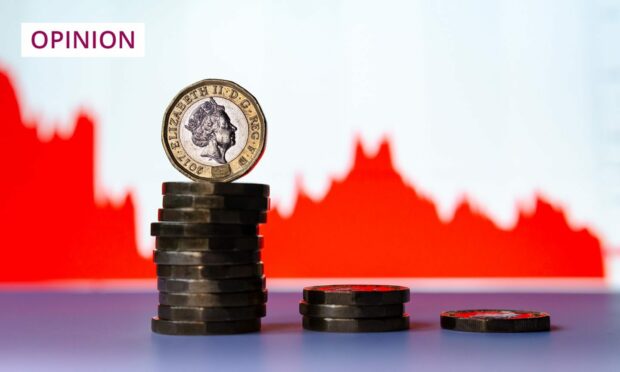In for a penny in for a pound, pun intended. A few months back I got some stick for a column and headline on the risk of continued high inflation. I was outed as a Tory / Labour / SNP fanboy, can’t remember which but it’s a good sign I get called all of them.
With that in mind I thought we should go for it on this topic and headline this month. Obviously, the Bank of England haven’t actually suggested that we nationalise all UK businesses, but it wouldn’t be hard to interpret that’s the best way to achieve what they are asking for.
Last week Andrew Bailey, the Governor, said: “When companies set prices I understand that they have to reflect the costs that they face. But what I would say, please, is that when we are setting prices in the economy and people are looking forwards we do expect inflation to come down sharply this year and I would just say please bear that in mind”.
The inference from the comments is that companies are raising prices above what is required to maintain ‘normal’ profits.
‘Normal Profits’ is an economic outcome where prices meet a set of conditions relating to appropriate competition and information being shared in a market.
By inference Andrew Bailey appears to think companies are raising prices to make ‘Supernormal Profits’, again an actual term, which just means the profits being made are exceptional or above what is required to operate in a normal market – ie they are profiteering!
‘Unexpected’ rise in inflation
In situations where conditions are insufficient to control markets, what usually happens is governments regulate markets to control prices and profits, in extreme cases they might even nationalise a service where no market exists. Businesses are also nationalised where they exist to provide a ‘public good’ and profit isn’t an important outcome.
So, in theory, there are controls, tools in place for the situation that Andrew Bailey discusses. The problem is that the comments are so general and unspecific that they almost feel surreal as a businessperson and economist.
One basic requirement of efficient markets is that competition exists. With competition, if companies raise prices excessively, people or businesses would simply buy from a company who hadn’t done that. So potentially Andrew Bailey is inferring that competition / markets are not working in the UK.

The main driver of the ‘unexpected’ rise in inflation (unexpected to some) was food prices. It strikes me that there is plenty of competition in the consumer food sector, whether we look at eating out, retailers, wholesalers or other areas. With that being the case, the comments appear ill-placed and insensitive. I’d suggest most businesses are simply trying to survive and particularly small businesses are impacted by a range of input price increases not only related to raw materials and also the cost of increased borrowing.
Now being a little bit kinder to the governor, there is a genuine debate to be had about excessive corporate profits. However, I would suggest these are generally larger businesses, not SME businesses. When a small business sets a price (price setting), they are often simply pricing to cover their costs and survive i.e. they are securing ‘normal profits’.
Debate needed on inflation, growth and wealth
On price setting perhaps the Governor may have a point if referring to some large corporates, but I am only guessing that’s what he meant. I suspect what was meant is that inflation will be compounded for a long period (something I said last year) if big business make supernormal profits (above inflation). However, if they can do that it means that markets and regulation is failing.
What he hasn’t said is that the ownership model of these business mean making supernormal profits is a desirable outcome. The companies’ executives are incentivised to make greater profits to secure better returns to investors, pensions and so on.
"What actually happens in the economy – to economic activity and inflation – will be determined by demand and supply. Economic life plays out at the intersection between them, in an economic equilibrium." https://t.co/TywBxfmnPn @LSEnews pic.twitter.com/kgtB9rQbBJ
— Bank of England (@bankofengland) March 27, 2023
Unfortunately until there is a more rounded and complete discussion on inflation, growth and wealth, soundbite comments will always be at best misinterpreted or at worse look uneducated.
Of course, the alternative is to forget the debate and just nationalise all UK businesses or regulate profits to a maximum of 1% above interest rates on an annual basis. I just can’t be sure that’s really what the inference was…
James Bream is general manager of Aberdeen-based Katoni Engineering and chair of DYW North East

Conversation